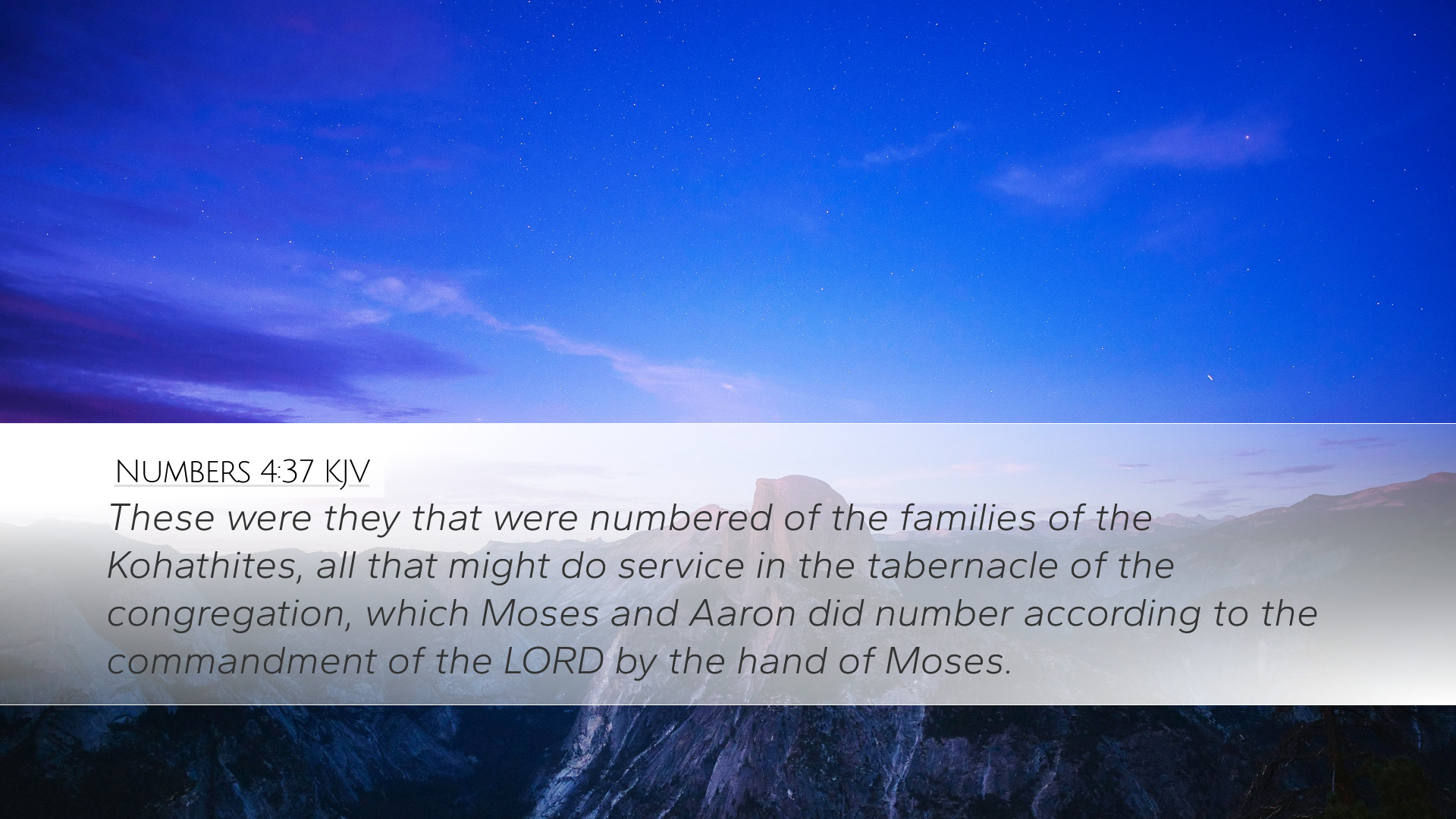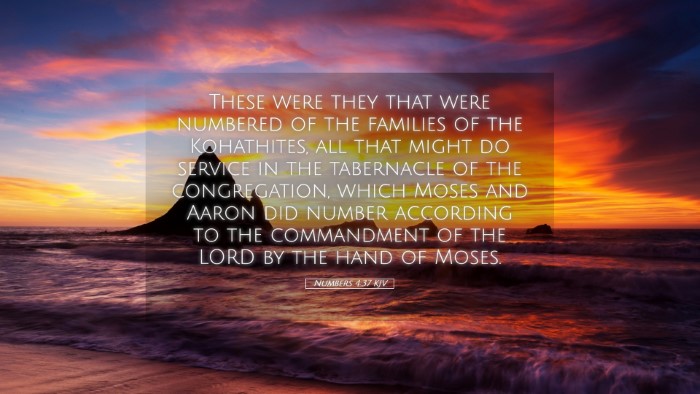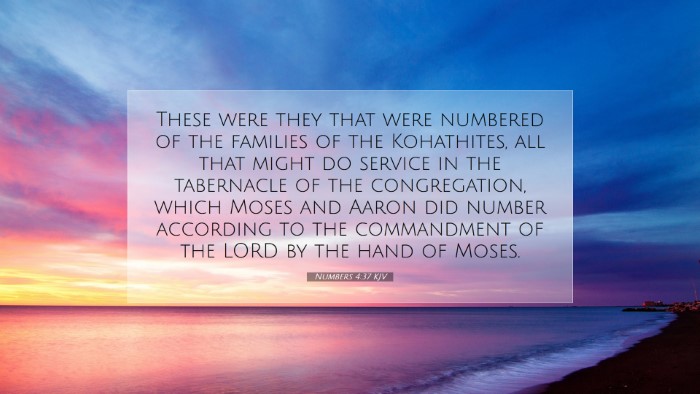Commentary on Numbers 4:37
Numbers 4:37 states, "These are they that were numbered of the families of the sons of Merari, all that were numbered of the men of war, were six thousand and two hundred." This passage provides significant insight into the structure and organization of the Israelite camp during their wilderness journey.
Overview and Context
The Book of Numbers records the Israelites' journey from Sinai to the Promised Land. Chapter 4, in particular, focuses on the census and the duties of the Levites, who were assigned specific responsibilities pertaining to the Tabernacle. The family of Merari, one of the Levitical clans, is highlighted in this verse.
Exegesis and Breakdown
As we delve deeper into this verse, it is vital to appreciate the following aspects:
- Numbering and Organization: The numbering reflects God's order and organization among His people. Matthew Henry emphasizes the importance of structure within the community: "God is a God of order, and his people are to be arranged accordingly."
- Merari's Role: The descendants of Merari had the duty of transporting and caring for the heavier parts of the Tabernacle. Albert Barnes notes, "They carried the boards, the bars, the pillars, and sockets," which signified their vital role in worship and ministry.
- Military Metaphor: The phrase "men of war" suggests a readiness for battle. Adam Clarke highlights that even while engaged in sacred duties, they were to be prepared for physical defense, illustrating the duality of their role.
Theological Implications
This verse offers rich theological insights relevant to pastoral teaching and scholarly reflection:
- God’s Provision: The numbering indicates that every individual has a purpose. As the church today seeks to fulfill its mission, it is essential to recognize that each member contributes to the greater work of the Kingdom.
- Serving God: The Levites' dedication to their roles can inform modern ministry. As Barnes suggests, "The dedication of service to God should be prioritized above all else," with a clear understanding that ministry requires commitment and focus.
- Community and Identity: The detailed inventory of the tribes exemplifies the importance of community. Clarke states, "The people of God are connected and should act as one body." This unity is crucial in the church’s mission today.
Practical Applications for Ministry
Understanding the significance of Numbers 4:37 can lead to practical applications in ministry:
- Organizational Structure: Churches can learn from the structured approach of the Israelites. Effective organization aids in fulfilling the mission of the church, ensuring every member understands their role.
- Readiness for Service: Just as the sons of Merari were ready for their duties, church leaders must cultivate a culture of readiness among congregants, equipping them for ministry and service.
- Embracing Diversity: The unique roles of each Levitical clan remind us of the diversity within the body of Christ. Each member is gifted differently, and this diversity should be embraced and celebrated.
Conclusion
Numbers 4:37 provides essential insights into the nature of God's people as they journey through life. By recognizing the significance of organization, role, and readiness for service, modern-day believers can aspire to fulfill their calling with diligence and unity.
The commentary from respected theologians reaffirms that God's order and purpose are integral to our identity and mission as His people. As pastors, students, and scholars reflect on these truths, may they be empowered to live out their faith with intentionality and devotion.


